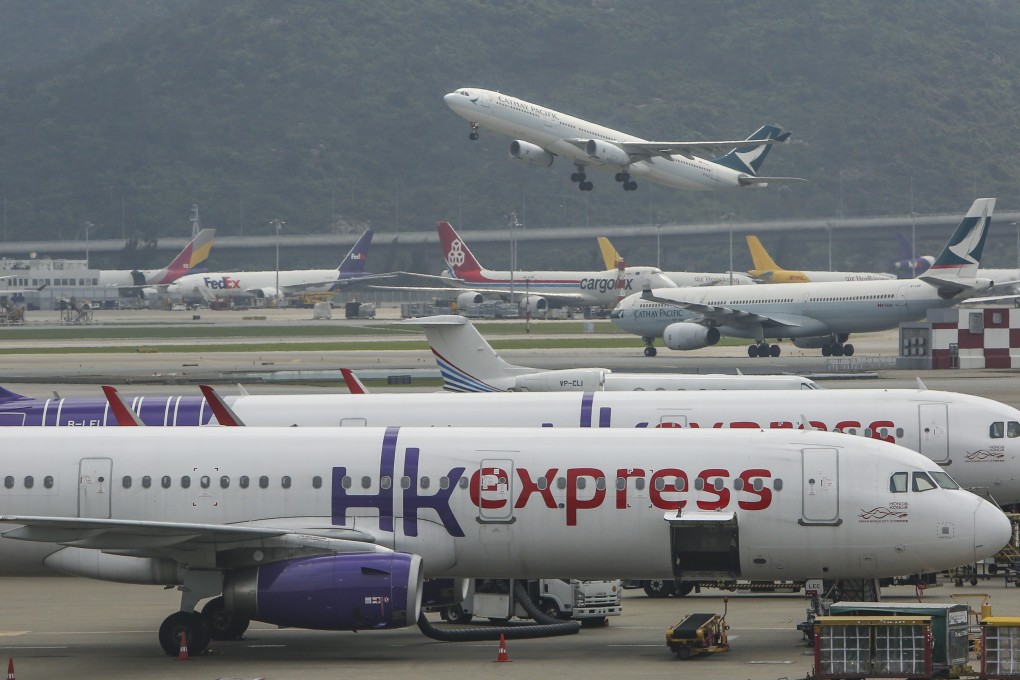Advertisement
Cathay Pacific Airways ‘perfectly comfortable’ with HK Express purchase, says CEO Rupert Hogg, despite sideshow at Hong Kong Airlines
- Analysts say legal fight at Hong Kong Airlines could cause complications for Cathay’s acquisition of budget carrier HK Express
- But CEO says he is ‘perfectly comfortable with the progress’ of the deal
Reading Time:3 minutes
Why you can trust SCMP

Cathay Pacific Airways has shrugged off a courtroom battle engulfing hometown rival Hong Kong Airlines, despite analysts growing wary that the legal fight could complicate its bid to buy budget carrier HK Express.
The CEO of Hong Kong’s biggest airline, Rupert Hogg, said he was “perfectly comfortable with the progress” of the HK Express deal, which has numerous hurdles to clear before completion by December 31.
Speaking on the sidelines of a Cathay Pacific event on Thursday, Hogg said he had not followed the case closely.
Advertisement
Hong Kong’s de facto flag carrier announced on March 27 a deal to buy the city’s only low-cost carrier, for HK$4.98 billion.
HK Express, headed by executive chairman Zhong Guosong, who indirectly controls 48.6 per cent of the company, opposed the sale by powerful shareholder HNA Group, and immediately launched a bid to contest the sale and scupper the deal.
Advertisement
Advertisement
Select Voice
Choose your listening speed
Get through articles 2x faster
1.25x
250 WPM
Slow
Average
Fast
1.25x